RF & Microwave Engineering Blog Posts

Comparing Two Interfaces for High-Frequency Modeling
When it comes to high-frequency electromagnetics modeling, which interface is better? We compare the Electromagnetic Waves, Frequency Domain and Electromagnetic Waves, Beam Envelopes interfaces.
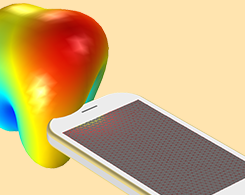
Fostering the Development of the 5G Mobile Network
To meet the specific performance requirements of the ideal 5G wireless network, there are certain RF designs that engineers can consider to transform such technology into a reality.
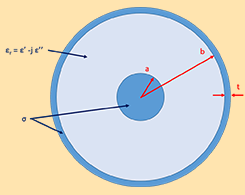
Model Cables and Transmission Lines in COMSOL Multiphysics
Learn how to compute the parameters of a coaxial cable from a COMSOL Multiphysics® simulation of the electromagnetic fields.
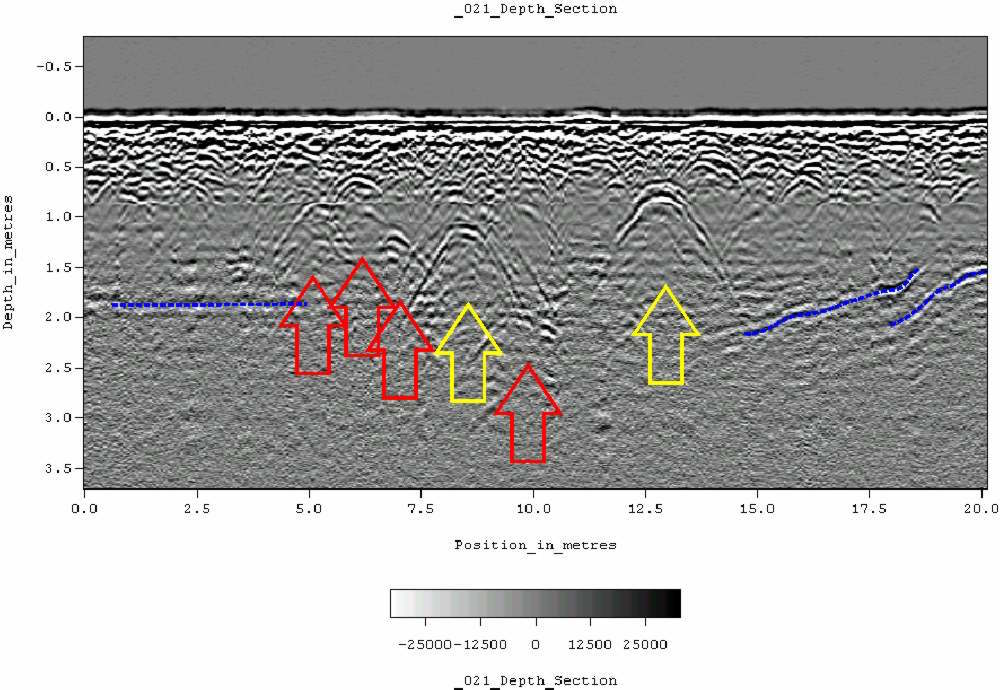
Simulation Improves Electromagnetic IED Detection Systems
To better understand the ground-penetrating radar technique and improve its accuracy for detecting landmines and other IEDs, researchers studied electromagnetic detection for subsurface objects.
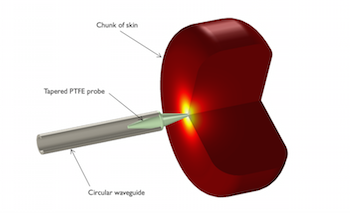
Studying a Dielectric Probe Used for Skin Cancer Diagnosis
Noninvasive tools like dielectric probes are a promising method for diagnosing skin cancer as early as possible. Learn about how simulation can be used to analyze their functionality and safety.
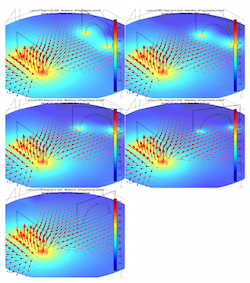
Investigating Wireless Power Transfer with Simulation
Some wireless power transfer (WPT) technologies must be oriented in a certain way to ensure proper performance. Simulation can be used to study and optimize these devices.
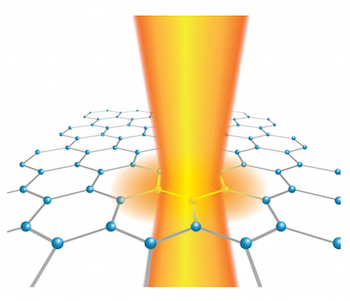
Should We Model Graphene as a 2D Sheet or Thin 3D Volume?
Graphene is a 2D sheet of carbon atoms that is 1 atomic layer thick. However, is graphene actually 2D or is it just incredibly thin, like a very fine piece of paper? How should it be modeled?
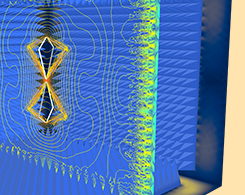
How to Adapt the Real World for Electromagnetics Simulations
Using an example of a biconical antenna in an anechoic chamber, we discuss how to closely mimic the conditions of real-world environments in your electromagnetics simulations.
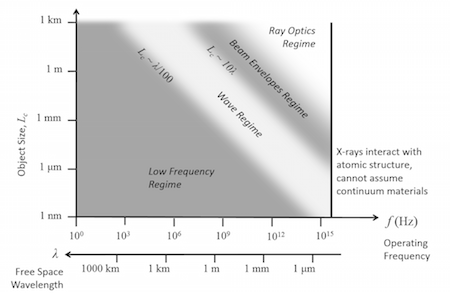
Guide to Frequency Domain Wave Electromagnetics Modeling
Read this blog post for your introduction to the various types of problems that you can solve in the RF and Wave Optics modules with COMSOL Multiphysics®.
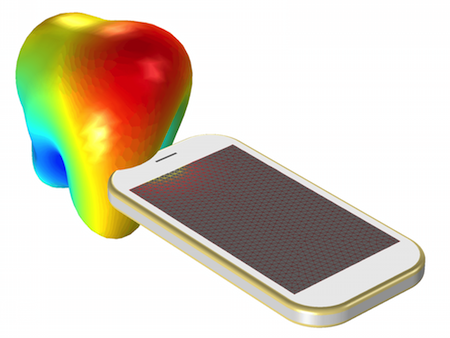
Optimizing Antenna Design for 5G and the Internet of Things
By optimizing the performance of existing mobile device antennas, we can ensure that new technology and devices are ready to operate under the 5G mobile network and internet of things.
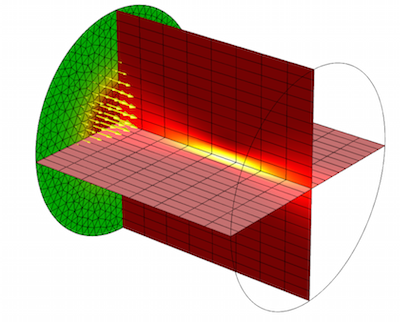
Modeling Laser-Material Interactions in COMSOL Multiphysics
When it comes to modeling laser-material interactions and heating, different modeling techniques are appropriate for different problems. We go over a few examples here >>
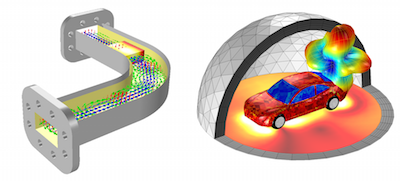
Simulation Tools for Solving Wave Electromagnetics Problems
Take a look at the various modeling, meshing, solving, and postprocessing options available for solving wave electromagnetics problems in COMSOL Multiphysics®.
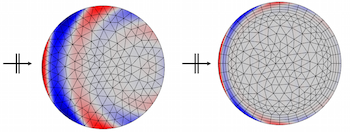
Modeling of Materials in Wave Electromagnetics Problems
Get an introduction to the various material models that are relevant to modeling wave electromagnetics problems in COMSOL Multiphysics®.
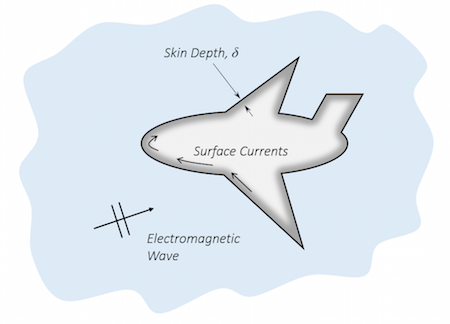
Modeling Metallic Objects in Wave Electromagnetics Problems
What is a metal, anyway? These materials are highly conductive and very good at reflecting incident electromagnetic waves, including light, microwaves, and radio waves.
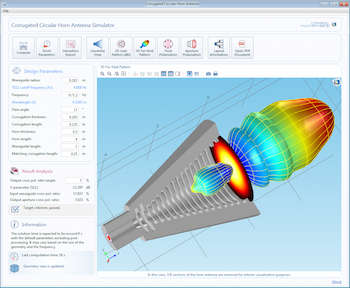
How to Create a Simulation App: Horn Antenna Demo
Get a comprehensive overview of what a simulation app is. We use the Corrugated Circular Horn Antenna Simulator demo app to demonstrate some of apps’ many benefits.
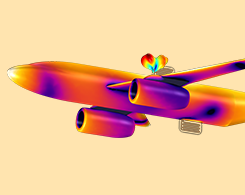
Simulating Antenna Crosstalk on an Airplane
The last airplane you flew aboard most likely had multiple antennas on its fuselage. This creates crosstalk between antennas that can disturb the operation of the aircraft. RF simulation can help.
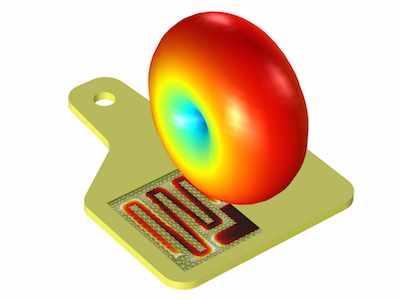
Evaluating a UHF RFID Tag Design with Simulation
Did you know that ultrahigh-frequency (UHF) RFID tags have a wider range than other types of RFID tags? This is why they are often used to identify animals.
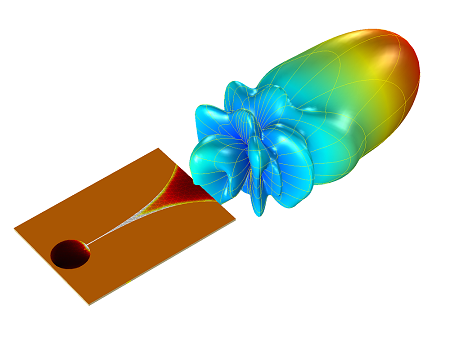
Vivaldi Antenna Design Analysis
Did you know the Vivaldi antenna was invented by someone named Peter Gibson? As the story goes, he had a passion for music and chose to name the antenna after Antonio Vivaldi, a Baroque composer.
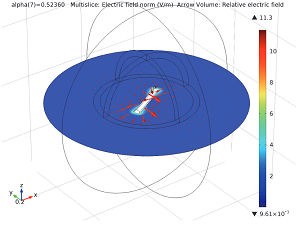
Modeling with Linearly Polarized Plane Waves
We use the Detecting the Orientation of a Metallic Cylinder Embedded in a Dielectric Shell model to demonstrate a specialized background field feature designed for linearly polarized plane waves.
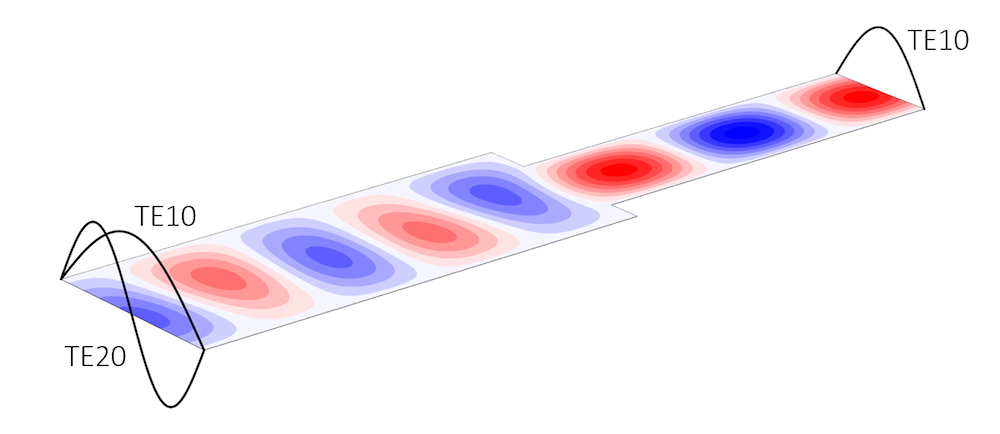
Ports and Lumped Ports for Wave Electromagnetics Problems
The Lumped Port boundary condition can be used to model boundaries through which a propagating electromagnetic wave will pass without reflection. Learn how to use this feature in your EM models.
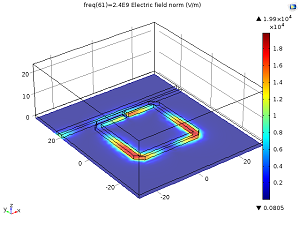
Using Numeric TEM Ports in Your Modeling Processes
In this blog post, get an introduction to the Numeric TEM Ports feature for modeling transmission lines, with an example of a notch filter with a split ring resonator.
Enhancing the Design of Biconical Antennas with Simulation
Biconical antennas are an important component when conducting electromagnetic compatibility (EMC) testing for consumer electronics. RF simulation can be used to enhance their design.
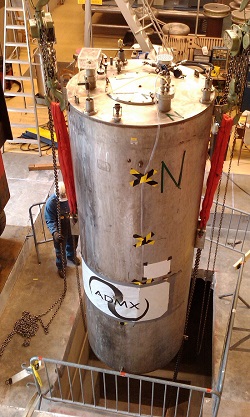
Detecting Dark Matter Axions with a Microwave Cavity
The Axion Dark Matter eXperiment (ADMX) uses a microwave cavity in an attempt to detect dark matter axions. Learn more about this project and how simulation can be applied to it.

RFID Tag Read Range and Antenna Optimization
A guest blogger from Continuum Blue, a COMSOL Certified Consultant, shares a numerical modeling example for radio-frequency identification (RFID) applications.
